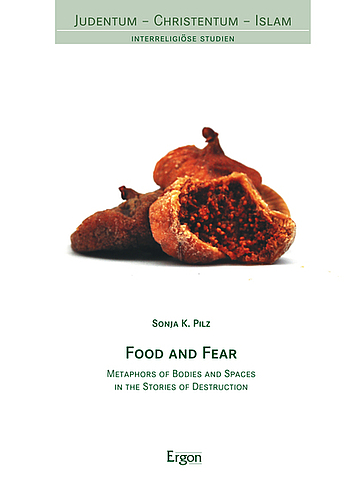Pilz
Food and Fear
ISBN 978-3-95650-140-1
The story of Yochanan's escape has been read for centuries as the founding myth of Rabbinic Judaism. While its great political and theological ambivalence and flexibility has been used countless times to re-interpret the story in the light of various political and theological ideologies, few attempts have been undertaken to understand the literary mechanisms of metaphors of food and bodies the story uses to evoke this ambivalence, as well as to describe its possible ideological 'derivatives.' Yochanan's story as it is weaved into the context of the stories of Martha and Zodok, is much broader in perspective regarding the chapter of Jewish history covered. With the female character of Martha, the humiliated and destroyed Jewish identity of the Judaism of the Temple, formerly proud and politically independent, acquires neither a priestly nor rabbinical, but rather a female face. Zadok, the former "priest of the Temple" and future "rabbi in Yavneh," symbolizes the liminal state of Judaism in the period of transformation. The figure of Yochanan ben Zakkai might be read as a counterpart to Zadok. The story of evolving Rabbinic Judaism is told by means of metaphors of the body, of food (from meat to flour), of spacial movements (from the Temple to Yavneh), and of literary characters that need to be read as synecdoches for entire schools of thought.



